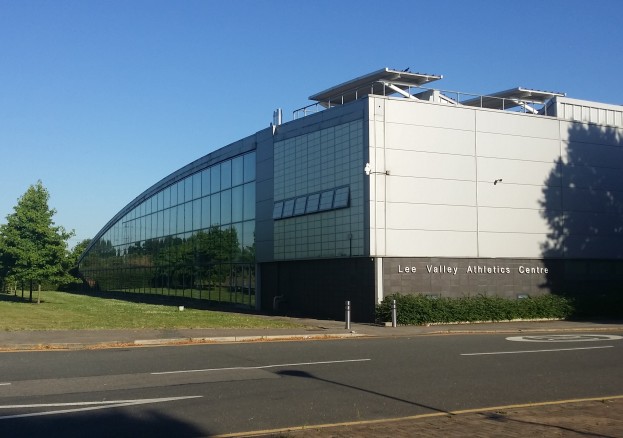
The Lea Valley Athletics Centre is one of several Athletics centres based in and around London. Housing an indoor 200m and an outdoor, nine lane 400m track, Lea Valley Athletics Centre is the largest Athletics centre serving the South East of England. Open to the public, the centre hosts almost daily sessions for Adults, children, group and individual sessions; which has seen the likes of Anthony Joshua, Dwayne Chambers and other high profile sports stars walk through the doors and use the facilities. But since the centre’s opening in 2007, it has mainly been the children who have benefited from the facility.
“I remember my son coming in one day telling me that he had to run from some boys on our estate.” Recalls one mother who sits in the stands of the indoor facility. “I told him that if he could outrun those boys, then he might as well do what Usain (Bolt) does and become a sprinter. I signed him up (to become a member) here the next month.” In the past two years that Sasha’s son, Nathan has been a member, Sasha has seen a vast improvement in his behaviour. “Now he doesn’t even have the energy to go to the shops after school. He chooses to eat right and Athletics has kept him out of trouble. He’s far more disciplined since coming here and I don’t think I’ve had a single call home from school in the past year.” For Sasha, Athletics has provided her family an escape from the gang violence that she claims has ‘gripped’ her North London estate. “Honestly, as Nathan was growing up, my greatest fear was that he would grow into a ‘bad John’ and just cause trouble, might sell drugs to keep up a certain lifestyle, get into fights- or God forbid, end up dead over a small misunderstanding.”
The phenomenon of Athletics ‘saving lives’ is one I continue to come across as I visit Athletics Centres across the city, as many of their members come from low-income households or areas where the crime rate is higher than the national average. However, Athletic Centres and the sports played within have provided more than just a place to spend time away from the troubles of everyday life; for some, Athletics has been a way to accomplish a dream.
I met with Christopher, an Athlete from Birmingham who’s urge to become the next 100m star for the UK was one that grew from the success of the Jamaican 4x100m team in Beijing. The now famous team, which featured Bolt, Powell, Carter and Frater all won Gold at a World Record time. “We’re Jamaican and I’m in the car with my mum, she’s trying to get home as fast as possible to watch the final. So the race starts and the moment we see the yellow jersey break into first place, the whole house feels like it’s shaking because we’re shouting so much. When the race was over, we all were just hugging each other, still cheering. It was that day that I realised that I want to make my people feel that proud, in not just me or a team, but for the country as well.” In the eight years since witnessing the Jamaican men’s team obliterate the world stage, Christopher has gone on to become a regular top 15 UK athlete with his own clothing sponsorship deal. How far is Christopher from accomplishing his dream of making the country proud at the Olympics? That awaits to be seen with an upcoming trail in the Diamond league championship taking place in Birmingham, though he understands that failure this time around does not mean failure to achieve in another four years’ time.
However, not all have been supportive of the avenues Athletics have provided for their children. “I honestly hoped that my children would break away from the stereotype of being yet another Black child being good at sports.” Complained one parent during our conversation, but it is a complaint that a growing number of coaches are aiming to combat.
Speaking to an under 15’s coach at Lea Valley Athletics Centre, she tells me that classroom attainment is more important than on-track performance. “I’m more than happy to not include a child into a squad if they are not going to school and doing well.” Parents can offer support here too, with a number of coaches supporting the decision for a parent to remove their child from an event if their grades have slipped.
So what role does Athletics play within the local community? The short answer is that it is a support network, one that young, Black, British children can utilise. With a chance to escape the troubles of the city and the pressures of home, Athletics has broken away from the stereotype of only teaching sport. Now children have the opportunity to develop themselves and their academic potential whilst simultaneously providing a career for those who may want to take it on further.
The Athletic Centre could be the future Community Centre.
